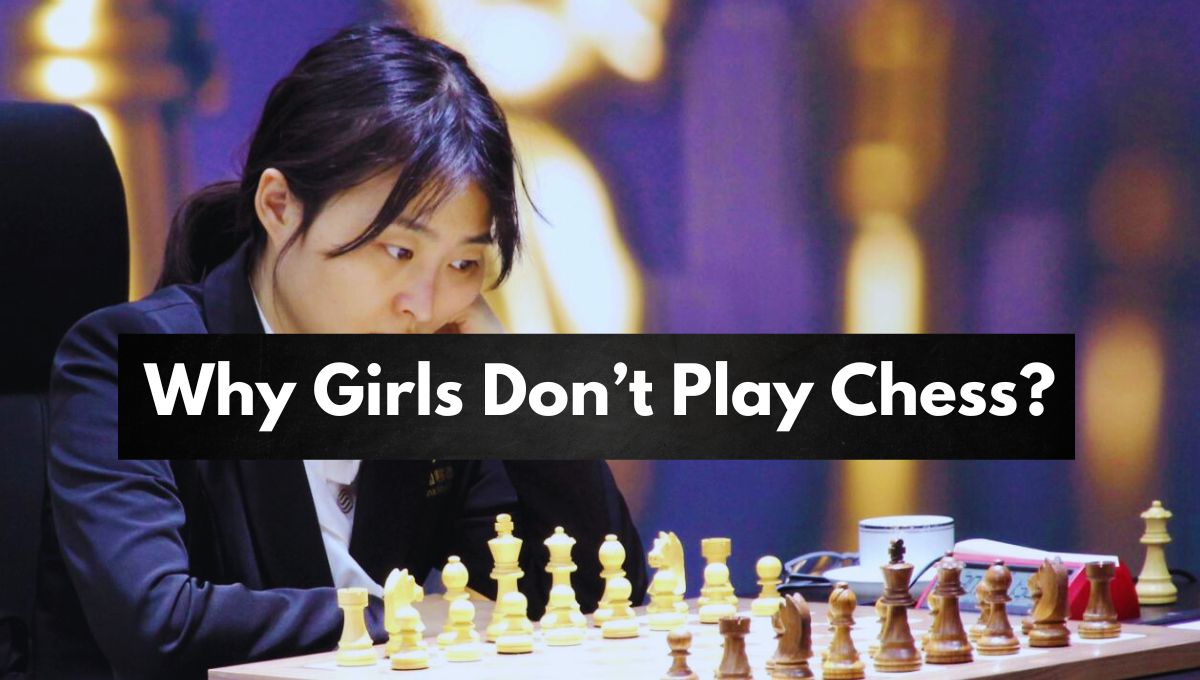Girls don’t play chess due to social and cultural factors, lack of role models, unequal opportunities and support, stereotypes impacting self-perception, and the perception of chess as a male-dominated environment.
These factors contribute to a gender gap in chess, creating barriers for girls to engage in the game and hindering their progression and representation in competitive play.
In this article, we will discuss each of these issues in details.
5 Reasons why girls don’t play chess:
1. Social and Cultural Factors
One major factor influencing the lower participation of girls in chess is the prevailing social and cultural norms surrounding the game.
Historically, chess has been associated with male players, perpetuating the perception that it is primarily a “male” activity.
This gender stereotype can discourage girls from entering the chess world or make them feel like outsiders if they do.
2. Lack of Role Models
The scarcity of visible female role models in chess further contributes to the gender gap.
When girls don’t see women excelling in the game, they may find it harder to envision themselves as successful chess players.
Encouraging and promoting female chess players as role models is crucial in inspiring more girls to take up chess and pursue it passionately.
3. Unequal Opportunities and Support
Girls may face unequal opportunities and support compared to their male counterparts.
Factors such as limited access to chess clubs, fewer tournament invitations, or lack of financial backing for training and travel can hinder girls’ progress in the game.
Addressing these disparities by providing equal resources and support is essential for fostering a more inclusive chess environment.
4. Stereotypes and Self-Perception
The presence of gender stereotypes can affect girls’ self-perception and confidence in chess.
Society often associates intellectual pursuits, including chess, with masculine qualities.
This stereotype may lead girls to doubt their abilities and believe that they are less capable or less interested in strategic games like chess.
Challenging these stereotypes and promoting a growth mindset is crucial to empower girls to embrace their full potential in chess.
5. Perception of Chess as a Male-Dominated Environment
The perception of chess as a male-dominated environment can create an intimidating atmosphere for girls.
The lack of diversity in chess events, male-dominated chess clubs, and the competitive nature of the game can make it challenging for girls to feel comfortable and welcomed.
Creating inclusive spaces, fostering a supportive community, and implementing diversity initiatives can help bridge this gap.
Conclusion:
The gender gap in chess participation is a complex issue influenced by various social, cultural, and psychological factors.
Addressing these barriers requires collective efforts from chess organizations, educators, parents, and society as a whole.
By challenging stereotypes, providing equal opportunities, and nurturing an inclusive environment, we can empower more girls to explore their potential in chess and bridge the gender gap in this intellectually stimulating game.
Let us strive for a future where chess is celebrated as a game for all, regardless of gender.

